
Starting June 1st, 2023 Our warehouse fee will be $0.65/cubic foot per month
In effort to lower the warehouse storage fee during inflation, we have went narrow aisle racking.This construction took us four months but the project is finally completed. With narrow aisle racking, we are able to drop storage by 24%.We as partners will go through this inflation together.
06/17/2024
Recent changes in maritime law have ushered in a new era for importers and exporters. The landscape of international trade is continually evolving, presenting challenges and opportunities. Understanding these legal shifts is essential for maintaining compliance and optimizing operational strategies.
For importers and exporters, the stakes are high, as failing to adapt can lead to significant disruptions and financial penalties. This guide delves into the specifics of these changes, providing insights into how to navigate these new regulations effectively. Hence, staying informed is not just beneficial - it’s imperative for continued success in the global market.
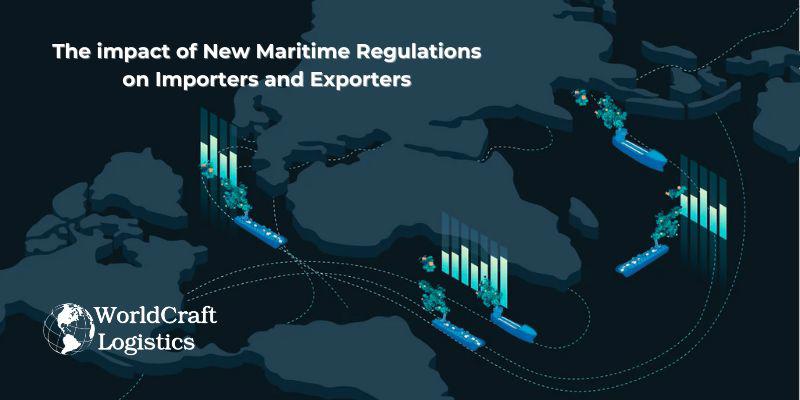
In recent months, targeted legal amendments have been impacting maritime operations, aimed specifically at addressing current challenges in international shipping. These changes include stricter regulations on ship emissions, enhanced protocols for ballast water management, greater scrutiny on ocean freight carriers, and increased security measures for vessels navigating international waters.
Each regulation type directly affects daily operations, demanding adjustments in how shipping companies and shippers manage fleets, documentation, and operations. For example, the new emissions standards require ships to use lower sulfur fuel or install emission-reducing equipment, significantly affecting operational costs and planning. Similarly, the updated security measures necessitate rigorous checks and balances, adding layers of complexity to compliance efforts.
For importers and exporters, understanding these amendments is essential to maintaining efficient and legal operations.
👉 View older posts: A sudden container bottleneck raises maritime freight rates, triggering global trade worries
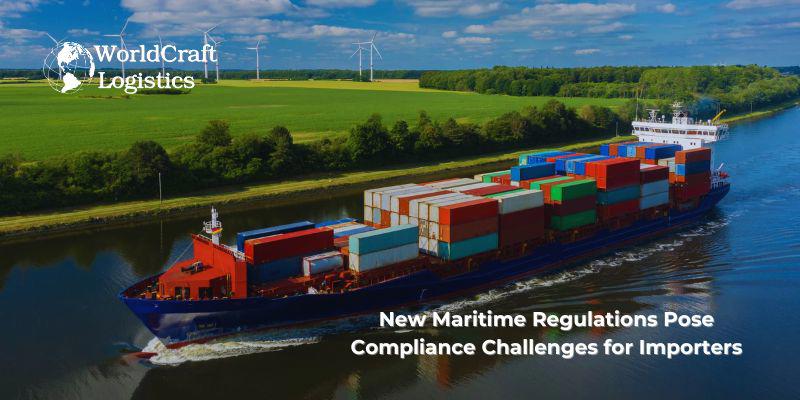
Navigating the complex web of new maritime laws has introduced significant compliance challenges for importers. Recent legal changes demand a deeper understanding of documentation requirements and more rigorous cargo inspections.
Importers now encounter an expanded range of forms and permits, reflecting stricter security and environmental standards. This increase in paperwork complicates routine operations, leading to potential delays and heightened scrutiny during port inspections. For instance, failure to meet the new documentation standards can cause costly hold-ups, impacting overall supply chain efficiency.
Importers must, therefore, remain vigilant and possibly seek expert legal guidance to avoid disruptions and ensure smooth customs clearance.
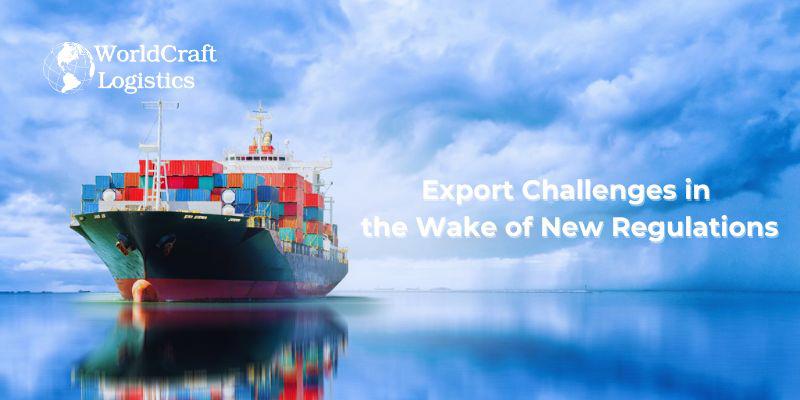
The landscape for exporters has shifted dramatically due to new maritime regulations. These updates have reshaped aspects like export licensing and the implementation of advanced security protocols.
Exporters now face more rigorous checks, significantly prolonging the process of getting goods to international markets. This increased scrutiny aims to enhance global trade security but comes with potential delays and added operational complexities.
Additionally, changes to export licensing requirements mean businesses must obtain extra approvals and possibly restructure their logistics to comply with new legal standards. Adapting to these conditions is essential for exporters to maintain market presence and avoid legal complications.
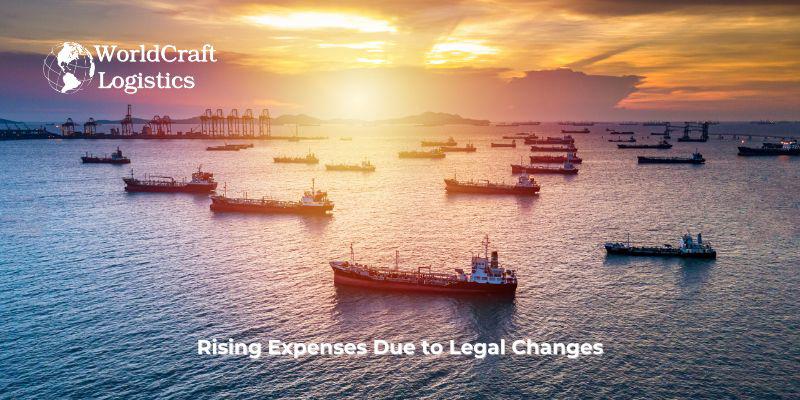
Adjusting to recent changes in maritime law is driving up operational costs for importers and exporters. Compliance with these new regulations often involves additional expenses, such as updated licensing fees, enhanced cargo inspections, and environmental compliance measures.
Efficient storage solutions become crucial as businesses need to manage larger inventories of compliant materials and documentation safely and accessibly. NYC Mini Storage stands out for New York City residents, offering reliable and flexible storage options. Their secure, scalable solutions are ideal for businesses needing extra space due to regulatory demands.
Strategic financial planning is vital to mitigate the economic impact of these legal changes, ensuring businesses remain efficient and compliant.
👉 View older posts: The Gulf Coast ports recorded a variety of shipments in April
Technological solutions have become essential for ensuring compliance and streamlining operations as maritime laws tighten.
Digital documentation systems, for instance, ease the management of the extensive paperwork now mandated by new regulations. These systems minimize human error and improve the speed and security of data handling.
In addition, real-time cargo tracking technologies give exporters and importers up-to-the-minute information on their shipments, crucial for managing schedules amid stricter inspection protocols.
Investing in such technologies not only helps meet new legal standards but also offers long-term benefits by enhancing operational efficiency and reducing potential delays. Embracing these technological advancements is increasingly vital for businesses aiming to succeed.
With the growing complexity of maritime law, accessing specialized legal resources and support has become crucial for businesses engaged in international trade.
Industry associations frequently provide up-to-date guidance and workshops on compliance with new regulations. Legal firms specializing in maritime law offer tailored advice to address specific business needs and challenges. Additionally, government portals often feature sections on recent legislative changes, providing official interpretations and procedural advice.
Utilizing these resources ensures businesses remain compliant and better positioned to anticipate and respond to future legal changes. Engaging with these support networks is vital for effectively navigating maritime law complexities and ensuring smooth operational transitions.
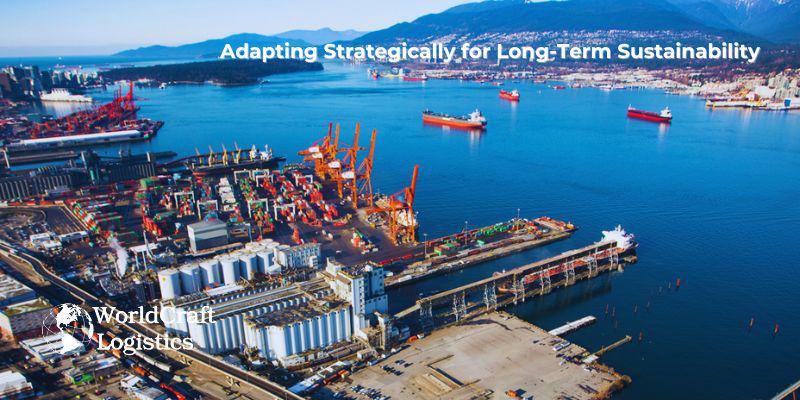
With new maritime laws now enacted, strategic adjustments are essential for long-term success in import-export operations.
One effective strategy is diversifying supply chains to minimize reliance on single points of failure, which can be especially vulnerable under strict regulations. Reevaluating vendor contracts to include terms reflecting new legal realities is another crucial step, ensuring that all parties comply with current requirements. Additionally, enhancing in-house compliance departments with expert staff and updated training programs can provide businesses with the resilience needed to manage future regulatory changes.
Emphasizing these proactive measures helps businesses adapt to current conditions and prepares them for future shifts in the regulatory landscape.
👉 View older posts: Strong U.S. Import Growth Continues into February, S&P Global Market Intelligence Analysis
Keeping abreast of the recent alterations in maritime legislation demands a vigilant and knowledgeable strategy. With the regulatory landscape in a state of flux, being well-versed in these modifications isn’t merely beneficial - it's imperative.
Employing legal aids, adopting technological innovations, and implementing strategic modifications are crucial for upholding compliance and optimizing operations. Consequently, ongoing collaboration with industry specialists and allocation of resources to compliance infrastructure are indispensable.
In summary, taking proactive measures to navigate these legal transformations will safeguard the resilience and competitiveness of your enterprise in the international arena.
Overall, Worldcraft Logistics believes that the impact of new maritime regulations on importers and exporters is profound and multifaceted. These regulations aim to enhance environmental sustainability and improve safety standards, while posing both challenges and opportunities for the global trading community. Importers and exporters must deal with the complexity of compliance, which can incur additional costs and require operational adjustments. However, these changes also promote innovation, encouraging the adoption of greener technologies and more efficient practices. Ultimately, those who proactively adapt to these evolving standards will not only ensure their competitiveness but also contribute to a more responsible and sustainable maritime industry.
SEO
Digital Marketing/SEO Specialist
Simon Mang is an SEO and Digital Marketing expert at Wordcraft Logistics. With many years of experience in the field of digital marketing, he has shaped and built strategies to effectively promote Wordcraft Logistics' online presence. With a deep understanding of the logistics industry, I have shared more than 500 specialized articles on many different topics.

Hot News
08/05/2024

Hot News
02/23/2023

Hot News
02/23/2023

Hot News
02/06/2023
Hot News
02/07/2023